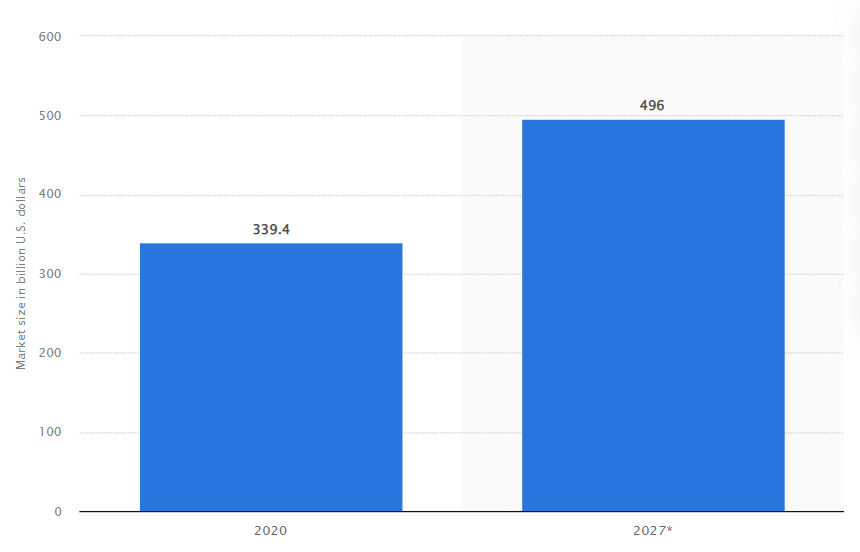Call centers have become an essential part of modern business operations. Companies use call centers to manage inbound and outbound customer calls, sales inquiries, and customer support requests. In this article, we will explore the benefits and drawbacks of hiring a call center for your business.
Deciding to Hire a Call Center
Businesses hire call centers for various reasons, such as managing customer service, providing technical support, conducting market research, and telemarketing. However, the primary reason for hiring a call center is to improve customer experience. A call center provides businesses with a centralized platform to communicate with customers and offer assistance when needed.
When a business grows, it becomes challenging to handle customer inquiries and manage support requests through email or chat alone. In such cases, hiring a call center can help businesses manage customer inquiries and support requests more effectively.
The Future of Call Centers: Are They Here to Stay or Dying Out?
The rise of chatbots and artificial intelligence has led some to speculate that call centers may become obsolete. However, according to Statista, the global call center market is projected to reach $496.6 billion by 2027, up from $226.7 billion in 2019. This data suggests that call centers are here to stay, and businesses will continue to rely on them for their customer support needs.

Inbound and Outbound Call Center Services
Call centers provide two types of services: inbound and outbound. Inbound call centers handle incoming calls from customers seeking assistance or support, while outbound call centers make outgoing calls to potential customers for sales or marketing purposes.
Inbound Call Centers
Inbound call centers are responsible for managing customer inquiries and providing technical support to customers. They are equipped to handle high volumes of calls and offer assistance to customers 24/7.
What Activities are Handled by Inbound Call Centers?
- Answering customer inquiries
- Managing customer complaints
- Providing technical support
- Taking orders and processing payments
- Providing product information
Important Metrics to Consider for Inbound Call Centers
Inbound call centers handle customer inquiries, provide technical support, and manage customer complaints. While hiring an inbound call center, businesses should consider the following metrics to ensure effective customer support:
First Call Resolution (FCR) Rate
The FCR rate is the percentage of calls resolved in the first attempt. A high FCR rate indicates that the call center can resolve customer issues in the first call, which reduces the need for customers to call back for the same issue. A low FCR rate can lead to customer frustration and dissatisfaction, which can ultimately impact the company’s reputation.
Average Handle Time (AHT)
AHT is the time taken by an agent to handle a customer call. A low AHT indicates that agents can handle calls quickly and efficiently, which reduces wait times for customers. A high AHT can indicate that agents are not adequately trained, which can lead to longer call durations and increased customer frustration.
Service Level Agreement (SLA) Compliance
SLA compliance ensures that calls are answered within a specific timeframe, which enhances the customer experience. Businesses should ensure that the call center they hire can meet the SLA agreed upon with the service provider.
Customer Satisfaction (CSAT) Rate
The CSAT rate measures the percentage of satisfied customers. A high CSAT rate indicates that customers are satisfied with the service they received. It is essential to ensure that the call center can deliver a satisfactory customer experience to maintain a positive reputation and customer loyalty.
Outbound Call Centers
Outbound call centers make outgoing calls to potential customers for sales or marketing purposes. They are responsible for generating leads, following up with customers, and closing sales. Businesses should consider the following aspects while hiring an outbound call center:
What Activities are Handled by Outbound Call Centers?
- Cold calling potential customers
- Following up with customers who have shown interest in a product or service
- Conducting market research
- Up-selling and cross-selling products or services
Important Metrics to Consider for Outbound Call Centers
Conversion Rate
The conversion rate measures the percentage of leads converted into sales. A high conversion rate indicates that the call center can effectively generate leads and close sales.
Average Sales per Agent (ASPA)
ASPA measures the average amount of revenue generated per agent. A high ASPA indicates that agents can effectively close sales and generate revenue.
Calls per Hour (CPH)
CPH measures the number of calls made by an agent in an hour. A high CPH indicates that agents can effectively make calls and generate leads.
Call Quality Score (CQS)
CQS measures the quality of calls made by the call center agents. A high CQS indicates that agents can effectively communicate with potential customers, leading to increased sales and revenue.
Choosing the Right Call Center for Your Business
Before hiring a call center, businesses should determine their specific needs, whether they require inbound or outbound call center services.
Determining Your Business Needs: Inbound or Outbound Call Center?
Businesses should consider the nature of their business and the type of support their customers require while determining whether they require inbound or outbound call center services.
Inbound call centers are responsible for managing customer inquiries and providing technical support to customers. They are equipped to handle high volumes of calls and offer assistance to customers 24/7. In contrast, outbound call centers make outgoing calls to potential customers for sales or marketing purposes.
Suppose a business deals with a product or service that requires technical support or customer service. In that case, they should consider hiring an inbound call center to provide technical support and manage customer inquiries. On the other hand, if a business wants to generate leads or conduct market research, they should consider hiring an outbound call center.
Finding and Hiring the Right Call Center for Your Business
Finding and hiring the right call center for your business can be a daunting task. Businesses should consider the following factors while hiring a call center:
- Experience and Expertise: Businesses should consider the experience and expertise of the call center service provider. They should ensure that the call center has experience working with businesses in their industry and can provide effective customer support.
- Availability and Response Time: Call centers should be available to provide customer support 24/7. Businesses should consider the response time of the call center and ensure that the call center can meet their SLA requirements.
- Technology and Infrastructure: Call centers should have the necessary technology and infrastructure to provide effective customer support. Businesses should ensure that the call center has reliable internet connectivity, backup power supply, and effective call management software.
- Reputation and Reviews: Businesses should consider the reputation and reviews of the call center service provider before hiring them. They should read online reviews and testimonials to ensure that the call center can provide effective customer support.
Pros and Cons of Hiring a Call Center
Like any business decision, hiring a call center has its pros and cons. Let’s explore the top five benefits and drawbacks of hiring a call center.
Advantages of Call Centers: Top 5 Benefits
- Improved Customer Service: Call centers provide businesses with a centralized platform to manage customer inquiries and support requests effectively. This leads to improved customer service and increased customer satisfaction.
- Increased Efficiency: Call centers have the necessary technology and infrastructure to manage high volumes of calls effectively. This leads to increased efficiency and reduced wait times for customers.
- Cost-Effective: Hiring a call center is cost-effective compared to setting up an in-house customer support team. Businesses can save on infrastructure costs, employee salaries, and training expenses.
- Scalability: Call centers can easily scale their operations based on business needs. Businesses can increase or decrease the number of agents based on call volumes.
- Expertise: Call centers have experienced agents who are trained to handle customer inquiries effectively. They can provide businesses with valuable insights and suggestions to improve customer support.
Disadvantages of Call Centers: Top 5 Drawbacks
- Lack of Control: Businesses may have limited control over the quality of customer support provided by the call center service provider.
- Communication Issues: Call centers may have agents who do not speak the same language as the customers they serve, leading to communication issues.
- High Turnover Rates: Call centers have high turnover rates, leading to a lack of consistency in customer support.
- Data Security Concerns: Call centers handle sensitive customer information, leading to data security concerns.
- Negative Impact on Brand Image: Poor customer support provided by the call center service provider can have a negative impact on the business’s brand image.
Call Center Reviews and Comparisons
Before hiring a call center, businesses should read online reviews and compare services to ensure they choose the right call center service provider
As businesses increasingly turn to call centers for customer support and sales, it’s essential to choose the right call center service provider. Reading online reviews and comparing services can help businesses make an informed decision. In this article, we will explore the top five places to read call center reviews and compare services.
Top 5 Places to Read Call Center Reviews and Compare Services
- Clutch.co: Clutch.co is a leading B2B ratings and reviews platform that provides in-depth analysis of call center service providers. Businesses can read verified reviews from previous clients and compare services to choose the right call center service provider.
- G2.com: G2.com is a trusted software review platform that also provides detailed reviews and comparisons of call center service providers. Businesses can read real user reviews and ratings to choose the best service provider.
- Capterra: Capterra is a popular software review site that offers a comprehensive directory of call center service providers. Businesses can compare prices and features to choose the right call center for their needs.
- TrustRadius: TrustRadius is a review site that provides detailed reviews of call center service providers. Businesses can read honest reviews from verified users to make an informed decision.
- Tech.co: Tech.co is a technology news site that offers comprehensive reviews and comparisons of call center service providers. Businesses can read expert reviews and compare services to choose the right call center for their needs.
Outsourcing Your Call Center
Outsourcing your call center can provide many benefits to your business, including cost savings and increased efficiency. When outsourcing your call center, businesses should consider the following factors:
- Location: Businesses should consider the location of the call center service provider. Countries such as the Philippines, India, and Mexico are popular destinations for outsourcing call centers due to their low labor costs.
- Language Skills: Businesses should ensure that the call center service provider has agents who are fluent in the language spoken by their customers.
- Infrastructure and Technology: Businesses should ensure that the call center service provider has reliable internet connectivity, backup power supply, and effective call management software.
- Reputation and Experience: Businesses should consider the reputation and experience of the call center service provider before outsourcing their call center.
Call Center Pricing: What You Need to Know
Call center pricing varies depending on various factors, such as location, service type, and pricing model. Businesses should consider the following pricing models while hiring a call center:
- Per Minute: The call center service provider charges per minute for the duration of the call. This pricing model is suitable for businesses that experience low call volumes.
- Per Hour: The call center service provider charges per hour for the time spent handling customer inquiries. This pricing model is suitable for businesses that experience moderate call volumes.
- Per Call: The call center service provider charges per call, irrespective of the call duration. This pricing model is suitable for businesses that experience high call volumes.
- Part-Time: The call center service provider charges based on the number of hours worked by their agents. This pricing model is suitable for businesses that require customer support for a specific duration.
- Commission: The call center service provider charges a commission based on the sales generated by their agents. This pricing model is suitable for businesses that require sales support.
- Hourly + Commission: The call center service provider charges a combination of hourly and commission fees. This pricing model is suitable for businesses that require both customer support and sales support.
Call Center Salaries: What to Expect
The salaries of call center agents vary depending on their location and experience. In the United States, the average hourly rate for a call center agent is $14 per hour. However, call center agents in other countries may earn significantly less.
In the Philippines, call center agents typically earn between $3 and $6 per hour. This low labor cost has made the Philippines a popular destination for outsourcing call centers. According to a report by Statista, the Philippines is the second-largest outsourcing destination in the world, after India.
It’s worth noting that call center salaries in the Philippines vary depending on the agent’s experience and the location of the call center. Agents in the Metro Manila area, where the majority of call centers are located, typically earn higher salaries than agents in other parts of the country.
Outsourcing to the Philippines: Is it a Good Idea?
Outsourcing to the Philippines can provide many benefits to businesses, including cost savings, high-quality customer support, and access to a large talent pool. The following are some of the benefits of outsourcing to the Philippines:
- Cost Savings: The low labor cost in the Philippines can provide businesses with significant cost savings compared to hiring an in-house customer support team.
- High-Quality Customer Support: The Philippines is known for its highly skilled workforce and excellent English proficiency. This makes the country a popular destination for outsourcing call centers, as businesses can expect high-quality customer support from their agents.
- Large Talent Pool: The Philippines has a large talent pool of call center agents, making it easy for businesses to find skilled agents to meet their needs.
- Time Zone Advantage: The Philippines is in a favorable time zone for businesses in North America and Europe, making it easier to provide 24/7 customer support.
- Cultural Compatibility: The Philippines has a strong cultural compatibility with Western countries, making it easier for agents to understand the needs of their customers.




